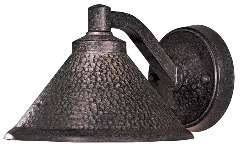By definition Light Pollution is unnatural or artificial light at night, the excessive or poor use of artificial outdoor light, which disrupts the natural patterns of wildlife, contributes to the increase in carbon dioxide (CO2) in the atmosphere, disrupts human sleep, and obscures the stars in the night sky. The primary cause of light pollution is outdoor lights that emit light upwards or sideways. Any light that escapes upward, except where a tree or building may be blocking it, will scatter throughout the atmosphere and brighten the night sky, thereby causing light pollution. Research suggests that artificial light at night can negatively affect human health, increasing risks for obesity, depression, sleep disorders, diabetes, breast cancer and more. Many species (including humans) need darkness to survive and thrive.
Being that Light pollution is the excessive or obtrusive use of artificial light at night. Light Pollution is a growing problem around the world, as cities and towns become increasingly illuminated. Light pollution has a number of negative consequences, including:
Harm to human health: Exposure to artificial light at night can disrupt the body's natural circadian rhythm, which can lead to a variety of health problems, including sleep disorders, depression, obesity, diabetes, and cancer.
Damage to wildlife: Light pollution can disrupt the natural behaviors of many wildlife species, including birds, insects, and amphibians. This can lead to decreased populations and even extinction.
Impact on the environment: Light pollution can contribute to climate change by increasing energy consumption and greenhouse gas emissions. It can also interfere with astronomical observations.
Here are some specific examples of the dangers of light pollution:
Sea turtles: Sea turtles are attracted to artificial lights on beaches, which can lead them to disorient and crawl away from the water, where they are vulnerable to predators and dehydration.
Migratory birds: Millions of birds die each year after colliding with brightly lit buildings and other structures.
Bats: Bats are nocturnal animals that use darkness to navigate and hunt. Light pollution can disrupt their foraging and breeding patterns.
Human health: Exposure to artificial light at night can suppress the production of melatonin, a hormone that plays an important role in sleep regulation. This can lead to insomnia, fatigue, and other health problems.
What can we do to reduce light pollution?
There are a number of things that we can do to reduce light pollution, including:
Use shielded lights: Shielded lights direct light downward, reducing the amount of light that escapes into the sky.
Reduce the brightness of outdoor lights: Outdoor lights should be only as bright as necessary.
Turn off unnecessary lights: Turn off lights when you leave a room or go to bed.
Support dark-sky initiatives: There are a number of organizations working to reduce light pollution. You can support their efforts by donating or volunteering your time.
As you know, Whispering Wind Ranches, and our Non-Profit, The Grand Canyon Preservation Foundation, are committed to sustainable lifestyles and living. These committments also extend to things like Light Pollution. Ever notice how well you sleep while on camping trips? This is because of the lack of light pollution. Ever notice how amazing the night skys are while youre on these trips? Again, lack of light pollution! Please consider changing your out door lighting and lights that promote healthy and beautiful light skies! I will give some picture examples below to get you started! Also, you can talk to your neighbors, communities, and HOAs regarding dark sky initiatives! Here are some links to help you with selecting Dark Sky Approved lighting! https://darksky.org/what-we-do/darksky-approved/





